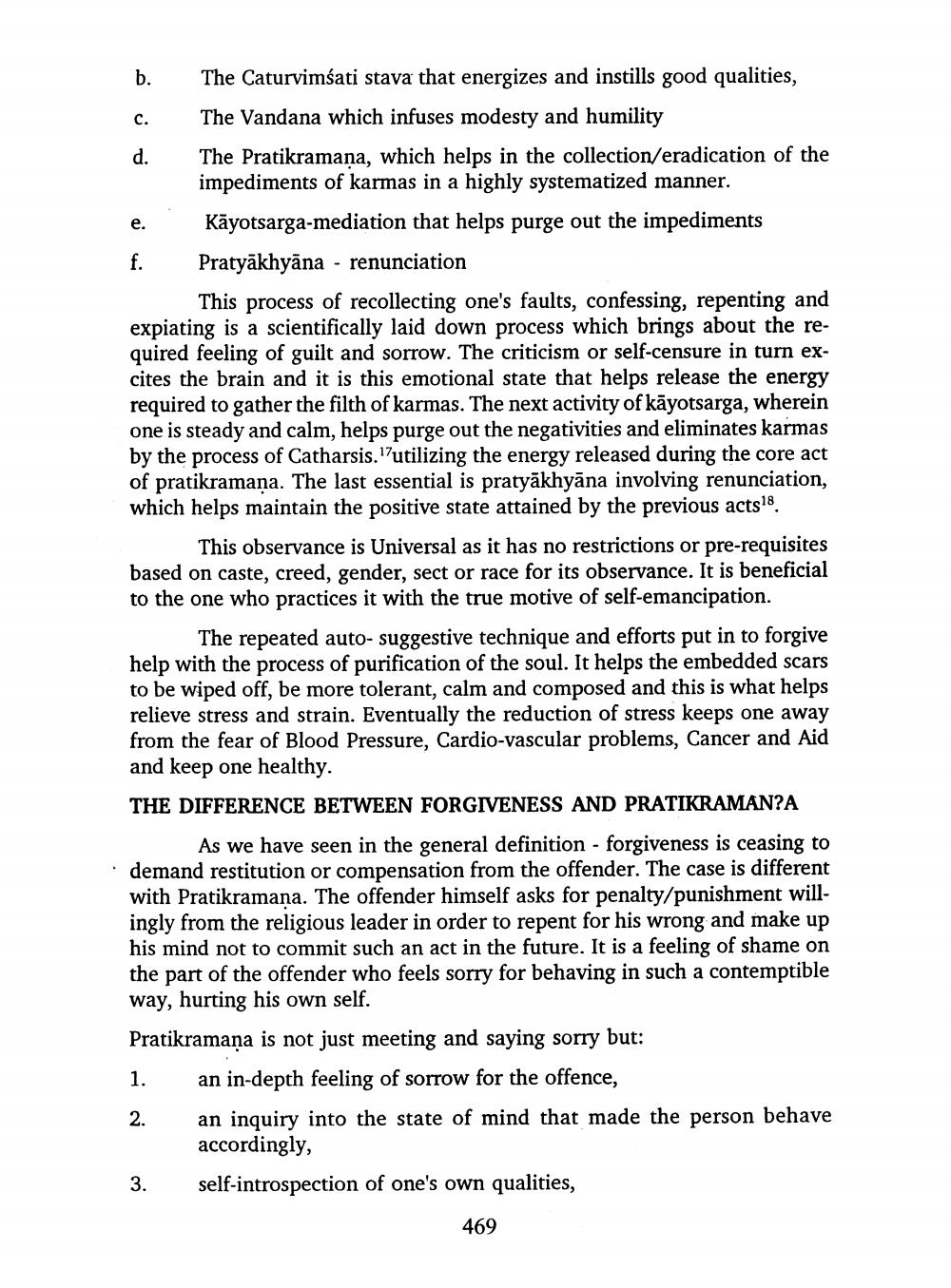________________
b.
C.
d.
e.
f.
Pratyākhyāna renunciation
This process of recollecting one's faults, confessing, repenting and expiating is a scientifically laid down process which brings about the required feeling of guilt and sorrow. The criticism or self-censure in turn excites the brain and it is this emotional state that helps release the energy required to gather the filth of karmas. The next activity of kayotsarga, wherein one is steady and calm, helps purge out the negativities and eliminates karmas by the process of Catharsis. "utilizing the energy released during the core act of pratikramana. The last essential is pratyākhyāna involving renunciation, which helps maintain the positive state attained by the previous acts18.
The Caturvimśati stava that energizes and instills good qualities,
The Vandana which infuses modesty and humility
The Pratikramaṇa, which helps in the collection/eradication of the impediments of karmas in a highly systematized manner.
Kayotsarga-mediation that helps purge out the impediments
This observance is Universal as it has no restrictions or pre-requisites based on caste, creed, gender, sect or race for its observance. It is beneficial to the one who practices it with the true motive of self-emancipation.
The repeated auto- suggestive technique and efforts put in to forgive help with the process of purification of the soul. It helps the embedded scars to be wiped off, be more tolerant, calm and composed and this is what helps relieve stress and strain. Eventually the reduction of stress keeps one away from the fear of Blood Pressure, Cardio-vascular problems, Cancer and Aid and keep one healthy.
THE DIFFERENCE BETWEEN FORGIVENESS AND PRATIKRAMAN?A
-
As we have seen in the general definition - forgiveness is ceasing to demand restitution or compensation from the offender. The case is different with Pratikramana. The offender himself asks for penalty/punishment willingly from the religious leader in order to repent for his wrong and make up his mind not to commit such an act in the future. It is a feeling of shame on the part of the offender who feels sorry for behaving in such a contemptible way, hurting his own self.
1.
Pratikramana is not just meeting and saying sorry but:
an in-depth feeling of sorrow for the offence,
an inquiry into the state of mind that made the person behave accordingly,
self-introspection of one's own qualities,
469
2.
3.




